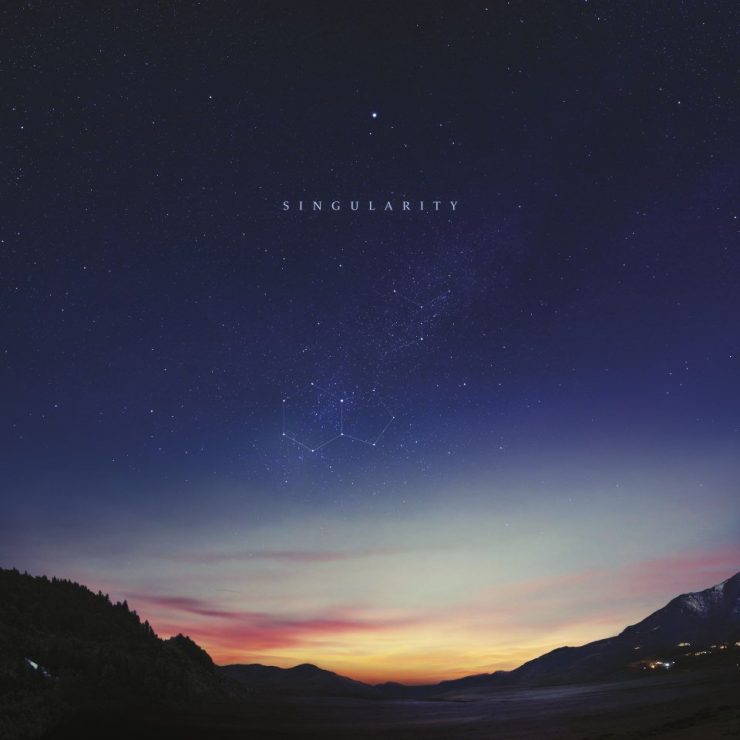9/10
Jon Hopkins’ 2013 album Immunity was a runaway hit, leading to an intense touring schedule of sold-out arenas and underground clubs alike that left Hopkins needing a break from a full-fledged album until Singularity, released 4 May on Domino. Hopkins’ ambient electronica, imbued with frenetic energy and piano-driven melodies, has set him aside from some of his contemporaries. In 2009 Hopkins collaborated with Brian Eno to score the film The Lovely Bones and last year he provided the sounds for “Mix the Body”, a show by award-winning choreographer Wayne McGregor.
Yet, what Hopkins does best - what Immunity was so lauded for, why his work resonated with sweaty dancers and high-brow music critics alike - is the synthesis of emotive, almost other-worldly sounds with violent, affecting dancefloor-friendly beats. “Intelligent Dance Music” - a frustrating, gate-keeping term, to be quite honest - doesn’t really come close to describing the depth of emotion that Hopkins can generate, or why his distorted rhythms and beats still manage to feel curiously personal. That ability - as well as his commitment to creating layered sounds that are at once transcendental and incredibly present - is out in full force on Singularity, elevated by Hopkins’ attention to detail and uncanny ear.
Singularity is most compelling when you listen to it in, well, singularity. On “Feel First Life” and “Luminous Beings” there’s a sense of ethereality inspired by psychedelic experiences - time spent tripping in the desert, trance states, meditation, experiences with DMT and mushrooms - all part of Hopkins’ life after touring. Indeed, the consuming, slow burning and heightened “drop” (for lack of a better word) throughout the album mirrors a psychedelic experience. Many of the tracks on Singularity start slow, building anticipation with fierce synths and choral melodies intertwined with frantic techno beats which, though they come very close, never quite overwhelm. Even the tracks’ titles (“Everything Connected”, “C O S M”) draw on those kaleidoscopic experiences.
Hopkins’ ability to pull the highs and lows together into one cohesive body of work is evident on Singularity, which fuses tranquil piano melodies with exquisite, quasi-futuristic bass lines, often in the same track. Parts of the album seem ripe for dancefloor revelry, while others evoke calm like a particularly spiritual train ride. Opener “Singularity” begins almost mournfully before becoming a pulsating, hypnotic wall of sound that fades into the slow-burn of “Emerald Rush”. Accompanied by an illustrated video following a boy in a purple hoodie (ostensibly Hopkins) on a fantastical journey, the slightly longer album version is worth listening to for the moment when a heavy beat kicks in halfway through, skittering around as the pace picks up while a muted, unfamiliar vocalisation exhales and inhales in the background. “Neon Pattern Drum” - a somber drone of sound that grows into a frenetic ensemble of chopped beats and drums, making you feel like you’re pulling at something - is sure to be played out on dancefloors everywhere. On “Everything Connected” the frantic 4/4 drums and melody create an atmosphere that feels like it’s been beamed in from another planet.
The album seems to switch gears halfway through “Feel First Life” as a piano melody on top of a luminous violin arrangement brings tranquility. “C O S M” feels like the ebb of an ocean washing over your feet, a cold mystical tinkling giving way to a heavy, throbbing bassline that almost overwhelms you. “Echo Dissolve” is a gorgeous piano arrangement - an homage to Hopkins’ initial training as a classical pianist. Like something you would find on a Debussy-themed Spotify playlist, it is tinged with melancholy, a soft break from the rest of the album. “Luminous Beings” is an abrupt change. As if from another dimension, painfully close to ours, the track somehow fuses tranquility and intensity in the way that Hopkins does best, before “Recovery” brings the album to a close: a sweet, solo melody, stripped away, completely bare.
Singularity sounds like an alien mesh of sound. Throbbing, almost ominous basslines build at the end of most tracks yet never quite climax (and all the better for it). Instead Hopkins adds in another ardent layer of rhythm, a heavier drum on a more pronounced off-beat, or quasi-choral arrangements that sneak up on you, remaining when everything else has faded away. It evokes colour - perhaps because of the stunning cover art, replete with the chemical molecule for DMT, a psychedelic - and feeling, in equal measure.
The album’s homage to psychedelic, mystical states makes it intriguing. But the production and care taken with each track suggests that clubs around the world may be hearing reworked, chopped and twisted versions played to sweaty revellers, illustrating Hopkins’ versatility: this is an album that can somehow externalise the feelings of being at once high and low, of feeling nothing and everything at all. Listen to each track twice and you’ll pick out slightly different parts to focus on, whether it’s a crinkly melody, woven in and out of energetic drum beats, or echoing vocals that form a rich texture at the base of a track. Listening to Singularity sounds like listening to the natural world - ebbing and flowing, frantic and calm.














